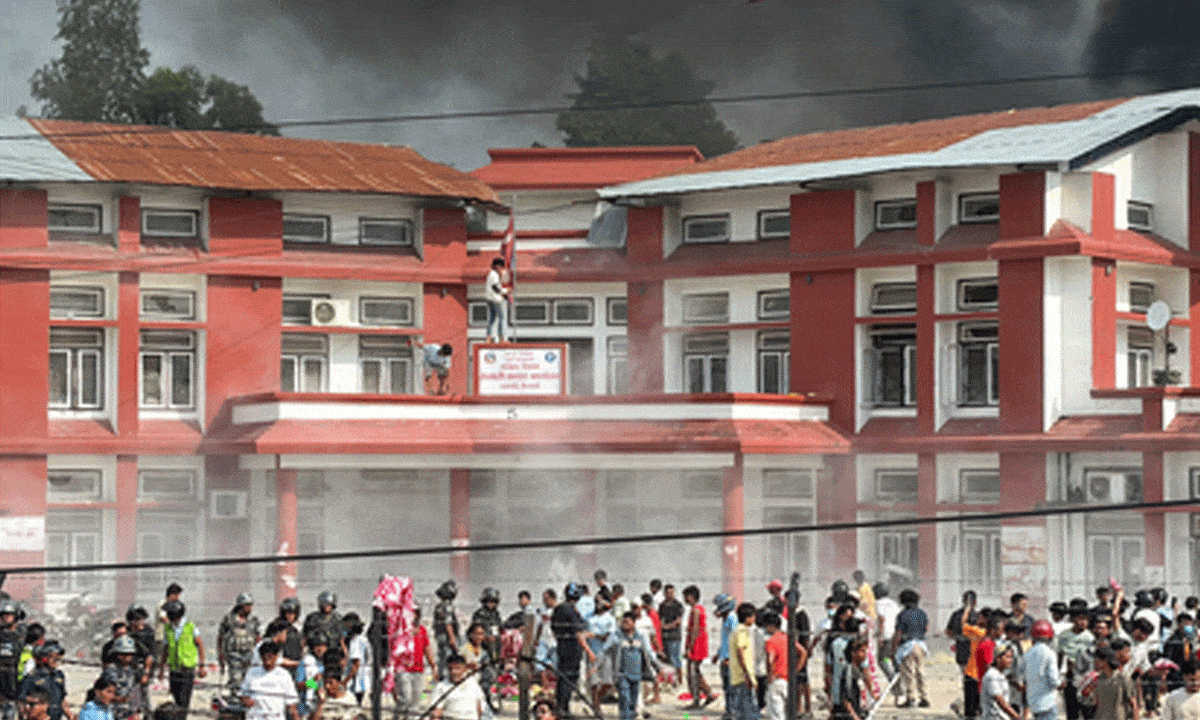Security tightened on Indo-Nepal border amid political unrest
Security has been beefed up along the Indo-Nepal border following violent protests and political turmoil in the neighbouring country's capital Kathmandu.

Patna: Security has been beefed up along the Indo-Nepal border following violent protests and political turmoil in the neighbouring country’s capital Kathmandu.
A large number of SSB jawans have been deployed across the border, with joint patrolling by district police and security forces on sensitive stretches.
Movement across the border has been restricted, and several check posts have been set on fire by protesters on the Nepal side.
Also Read: Rahul Gandhi go back: BJP stages sit-in as Congress MP arrives in Rae Bareli
As a result, thousands of people are stranded on either side of the international boundary.
Araria SP Anjani Kumar has directed all police stations and outposts in border areas to remain on high alert, closely monitor developments across the border, and report to district headquarters immediately.
Nepal is witnessing widespread unrest driven by public anger against social media ban, corruption and nepotism.
The student-led Gen Z protests in Nepal, which began in response to a government ban on social media, expanded into a larger campaign.
The situation escalated further after Prime Minister K.P. Sharma Oli resigned and protesters set fire to the Supreme Court, the Parliament and other government buildings and official residences.
The Nepali Army has assumed responsibility for maintaining law and order, as the security institution announced a nationwide curfew on Wednesday, effective until Thursday morning.
With the civilian authorities completely in a mess during Wednesday’s Gen Z protests, during which several government buildings and private properties were vandalised and torched, the Nepal Army announced on Wednesday night that it was taking the initiative for law and order in the country.
Citing the need to safeguard law and order, the security officials said the prohibitory order imposed on Wednesday would remain in effect nationwide until 6 A.M. the next day.
Once seen as one of South Asia’s politically stable nations, Nepal is now facing an unprecedented crisis.
The instability in Kathmandu follows a worrying regional trend, as India has already witnessed the ripple effects of uprisings in Sri Lanka and Bangladesh in recent years.
Nepal holds a unique significance for India — not only as a close cultural and historical ally but also as a strategic trading partner.
In FY 2024–25, bilateral trade touched $8.5 billion, with India exporting goods worth $7.33 billion to it, while Nepal exported around $1.2 billion to India, nearly 16 per cent of its GDP.
India mainly exports petroleum, vehicles, machinery, medicines, food items, and textiles, while Nepal sends agricultural produce, handicrafts, leather, and some industrial goods across the border.
Several cross-border infrastructure projects are underway, including upgrades to roads, railways, and air links, aimed at further boosting trade and connectivity.
Despite the crisis in Nepal, India is working to preserve stability in the bilateral relationship.
Efforts are being made to ease trade barriers, strengthen investment flows, and keep supply chains intact.
New Delhi has also intensified diplomatic outreach, signaling its commitment to supporting Nepal through this difficult phase.
Analysts believe that once stability returns to Nepal, the economic partnership between the two nations will deepen further, offering growth opportunities and contributing to broader regional stability in South Asia.
